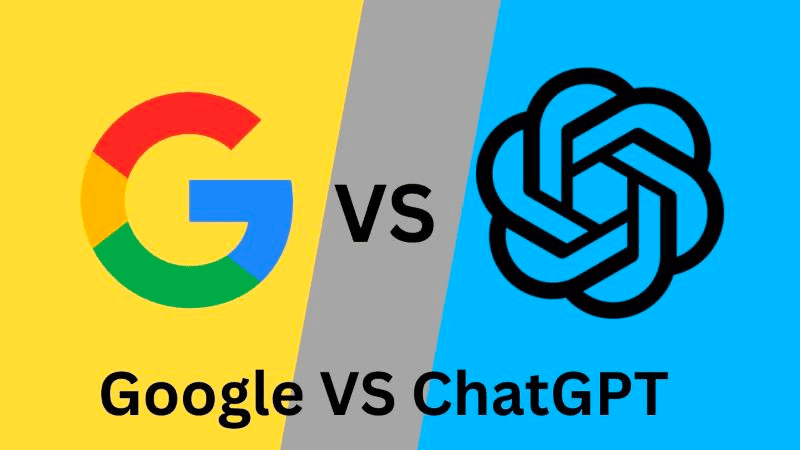
Have you ever preferred ChatGPT over Google to get a to-the-point and quick result? Well, you might have. Let’s have a deep insight into the fact.
Google is the go-to search engine for millions of people worldwide. However, recent advancements in natural language processing have led to the development of ChatGPT, a large language model capable of understanding and generating human-like responses.
As ChatGPT continues to improve, some wonder if it will replace Google as the dominant search engine. In this blog post, we’ll explore whether ChatGPT will replace Google, examining both the advantages and limitations of each platform.
Is ChatGPT a Threat to Google?
At first glance, it may seem that ChatGPT is a direct threat to Google. After all, ChatGPT is designed to understand natural language, meaning users can ask it questions in the same way they would ask a human being. In contrast, Google relies on keywords and phrases to deliver search results.
ChatGPT’s natural language processing capabilities mean it can provide more personalized search results that better align with the user’s intent. Additionally, it can respond to complex queries, including those with multiple questions or sub-questions.
While it’s clear that ChatGPT offers several advantages over Google in terms of natural language processing and personalization, it’s unlikely to replace Google as the dominant search engine anytime soon.
Google’s vast database of knowledge, specialized search tools, and advanced search algorithms make it an indispensable tool for many. However, as ChatGPT continues to develop and improve, we’ll see it complementing Google instead of competing.
The key takeaway is that both technologies offer unique advantages and capabilities; the most important thing is choosing the right tool for the job. Google plans to infuse its dominant search engine with artificial intelligence technology, already testing Bard, its conversational chatbot.
Why ChatGPT Cannot Replace Google Searches?
I use ChatGPT and Google for searches. In my personal experience and based on industry research and analysis, ChatGPT is unlikely to replace Google as the primary search engine anytime soon. Here’s why.
Database
While ChatGPT can understand natural language and provide personalized responses, it still lacks the vast database of knowledge that Google has accumulated over the years.
Google’s search algorithm is based on a vast network of interconnected data, including websites, images, videos, and more. For example, if a user types “how to fix a leaky faucet,” Google can provide a list of websites, videos, images, etc., as can be seen below:
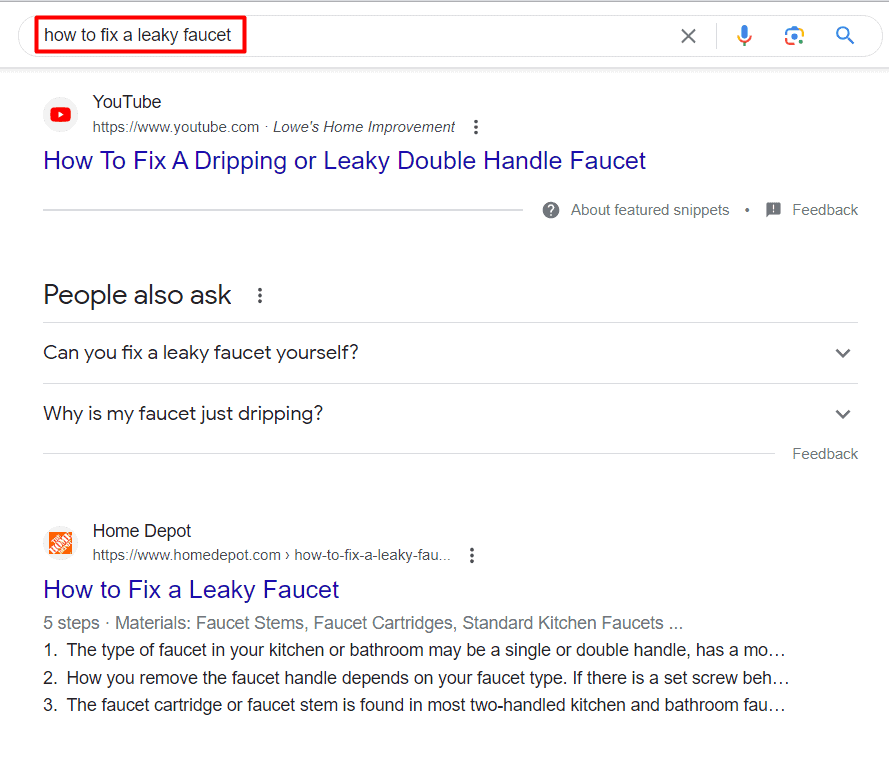
ChatGPT, on the other hand, may struggle to provide the same level of detail without access to a comprehensive database of knowledge:
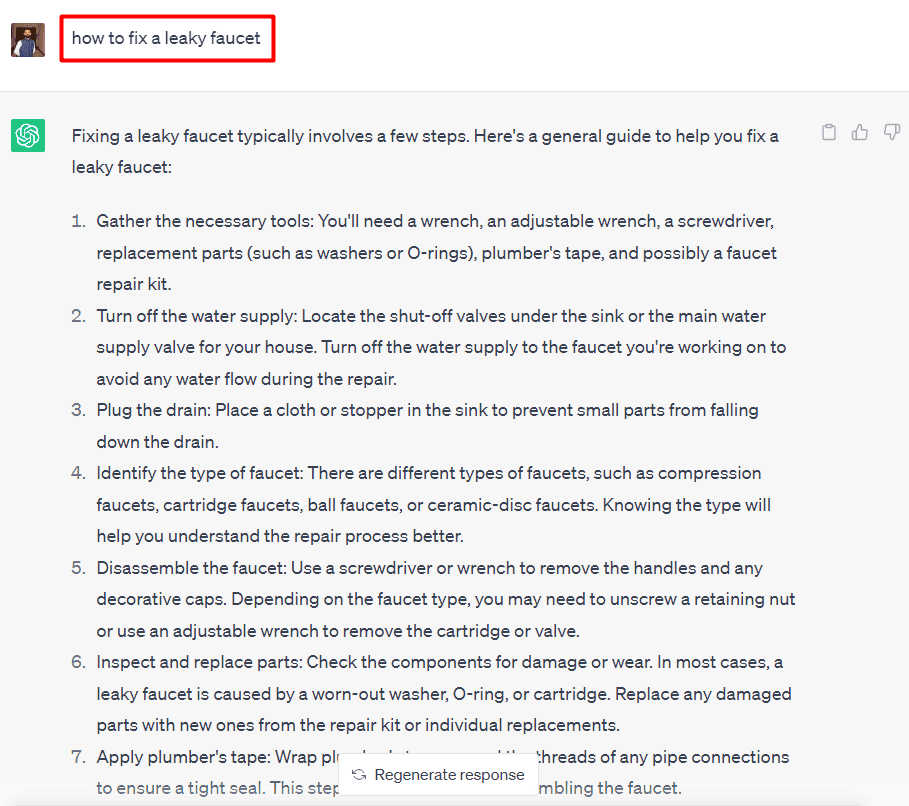
Specialized Search Tools
Google has developed a range of specialized search tools that allow users to find specific types of information quickly and easily. For example, Google Maps provides detailed maps and directions, while Google Images allows users to search for specific types of images.

ChatGPT, while capable of understanding natural language, may struggle to provide the same specialized search tools without access to the same data and algorithms as Google.
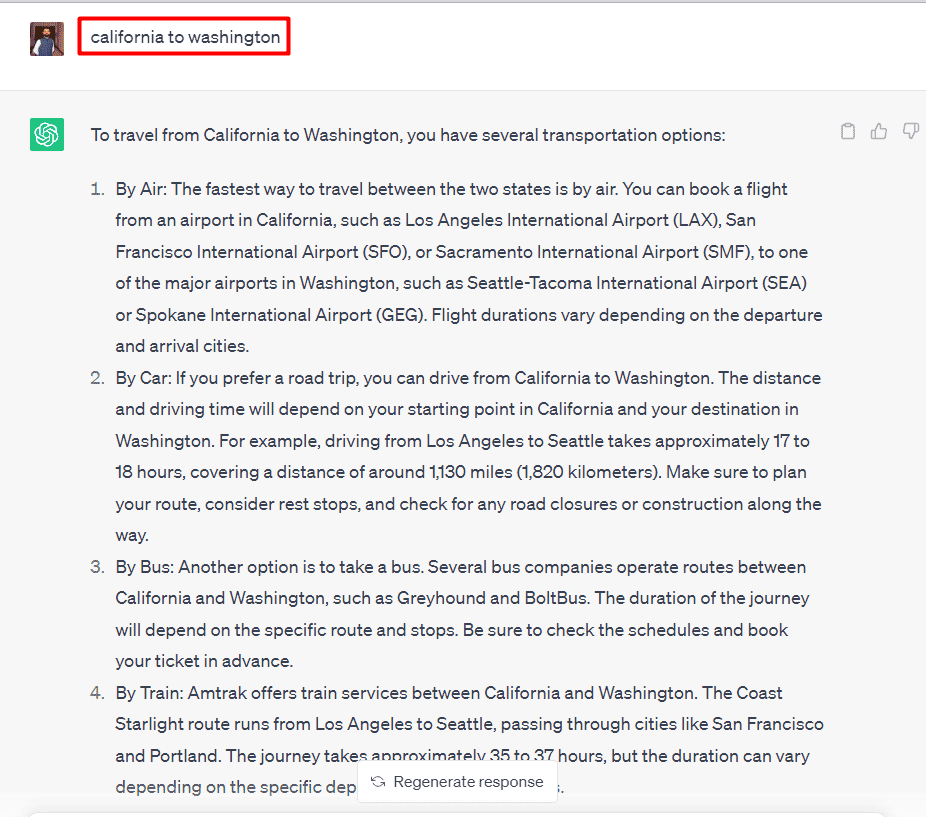
This means that users may still turn to Google for specific types of information, even if ChatGPT is better at understanding natural language queries.
User Habits
User habits and familiarity are important factors to consider when assessing the potential of ChatGPT to replace Google searches. Google has been the dominant search engine for over two decades. Users have become accustomed to using it for a wide range of queries.
While ChatGPT may be capable of providing more personalized responses and a better understanding of natural language, it may take time for users to become accustomed to using it as their primary search engine.
Additionally, users may hesitate to switch to a new search engine if they feel it is less comprehensive or reliable than Google.
Case Study: ChatGPT vs Google Search
A recent study compared the performance of ChatGPT and Google Search for a range of queries. While ChatGPT was able to understand natural language queries more accurately, Google Search was able to provide more comprehensive and detailed results.
For example, when asked, “What is the capital of France,” both ChatGPT and Google Search provided the correct answer.
However, when asked, “What is the history of the Eiffel Tower,” Google Search provided more detailed and comprehensive results.
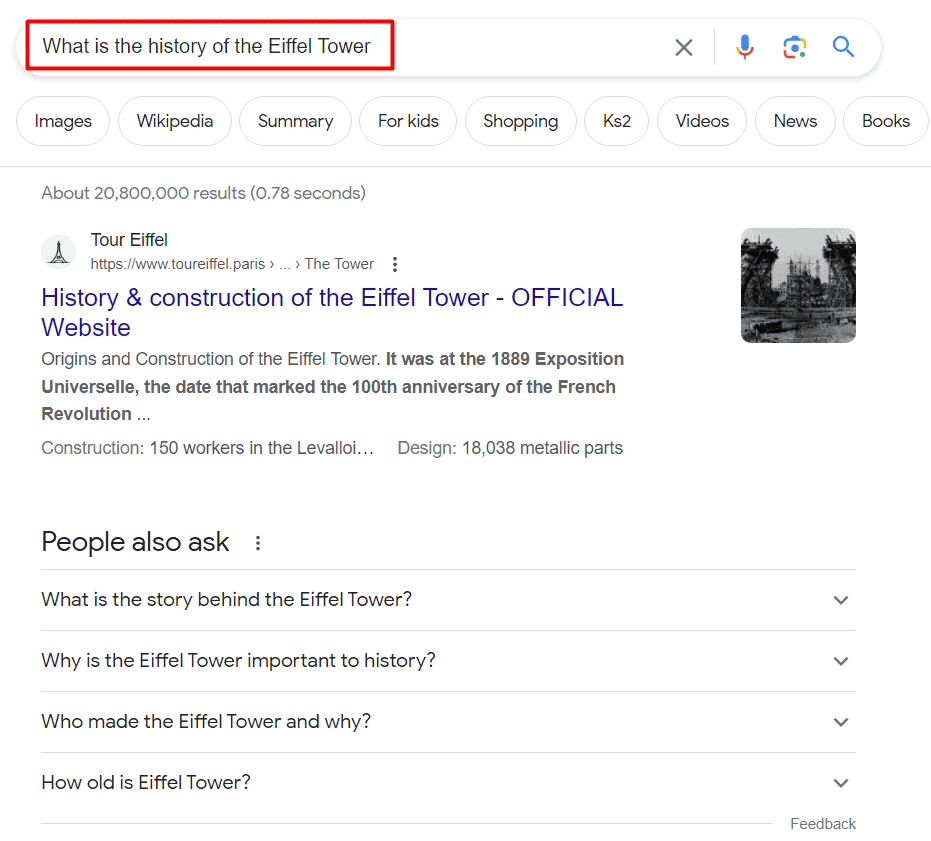
ChatGPT
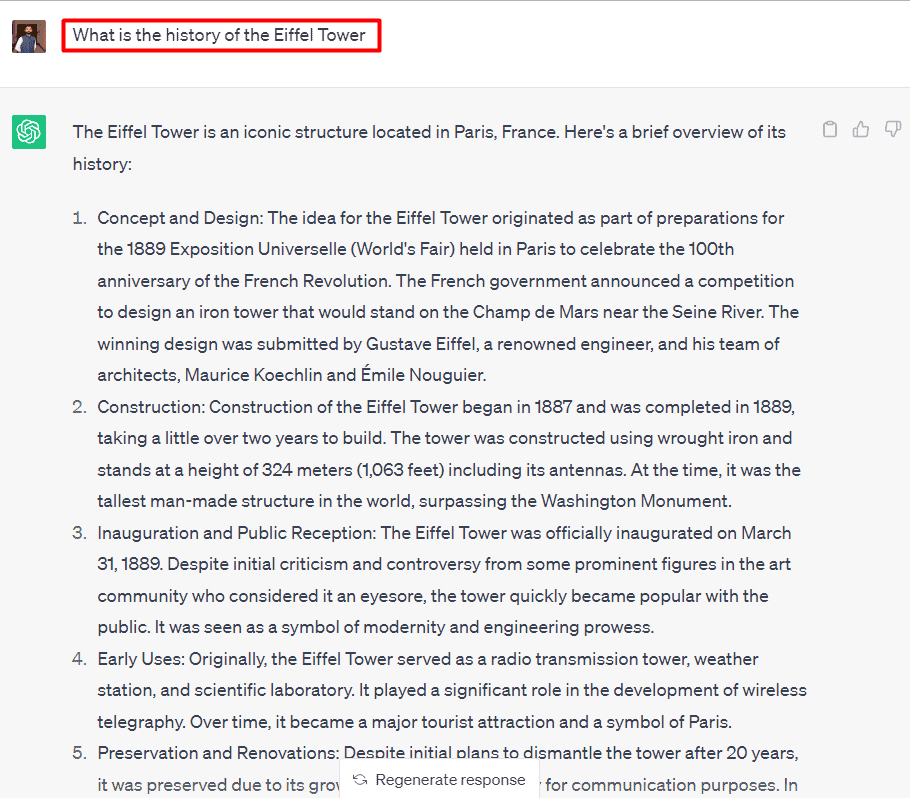
What Areas Does Google Perform Better Than ChatGPT?
While ChatGPT is an impressive technology, there are several areas where Google performs better, based on my personal experience and industry research. If you apply the same query on ChatGPT and Google, the latter provides a more updated and vast range of sources. Let’s dig into these:
Search Speed
Google’s search engine is incredibly fast, delivering search results in milliseconds. This speed is critical for users who need to find information quickly and efficiently.
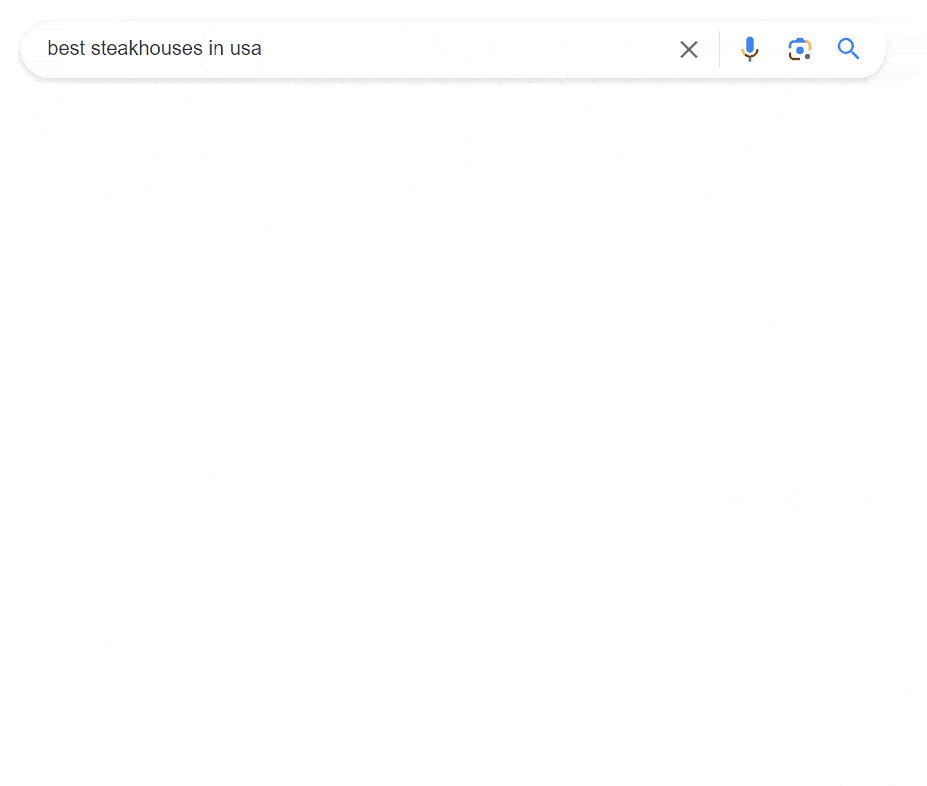
In contrast, ChatGPT may take longer to process complex queries and generate responses. This can be a significant issue for users needing answers quickly or working on time-sensitive projects.
ChatGPT
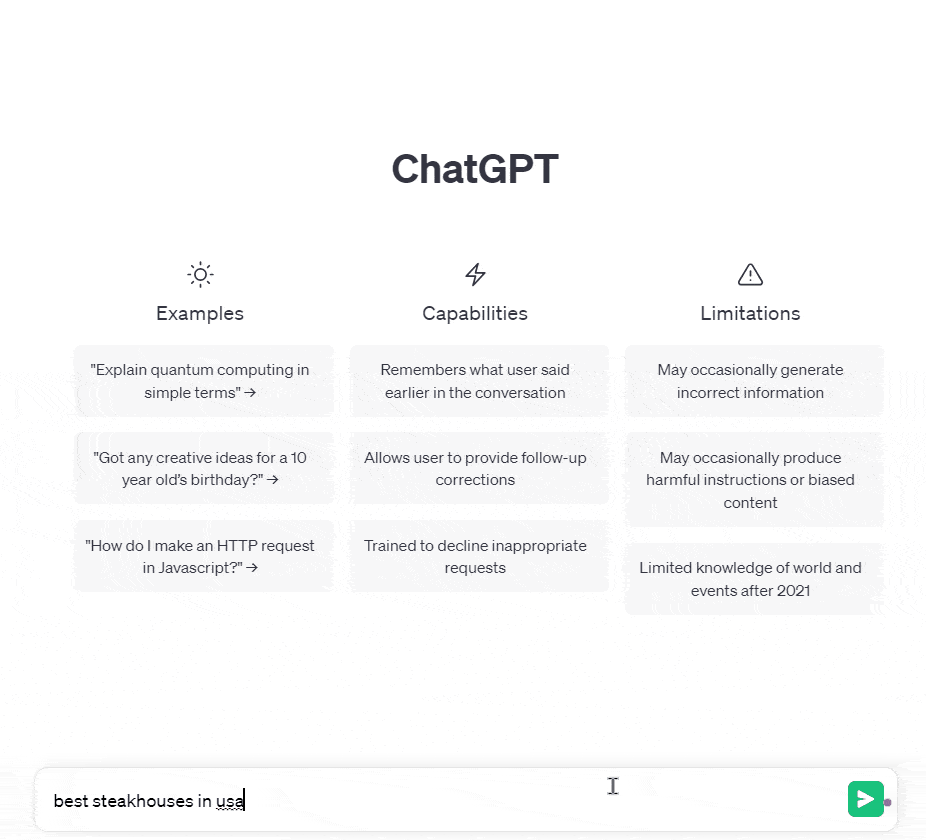
Search Results
Google’s search tools are highly specialized, each designed to deliver the best results for a specific query type. For example, Google Maps is designed to deliver accurate location-based results, while Google Scholar is designed to deliver academic research results.
A vast knowledge database, including information from Google Books, Google News, and Google Translate, back up Google’s search results. Users can access vast information quickly and easily, making it an ideal tool for research or learning.
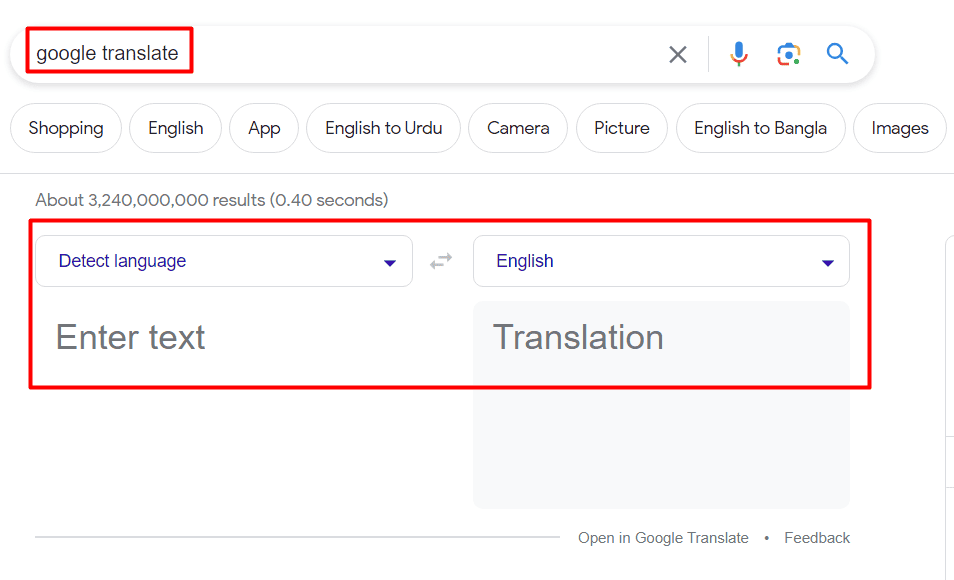
ChatGPT doesn’t provide as many detailed search results as Google. You get the best answers curated from its database, unlike Google, which exposes you to multiple sources.
Local Search
Google has developed specialized search tools for local searches, such as Google Maps, which provides detailed maps, directions, and reviews for local businesses. This capability is particularly important for users looking for specific services or products in their local area.
ChatGPT
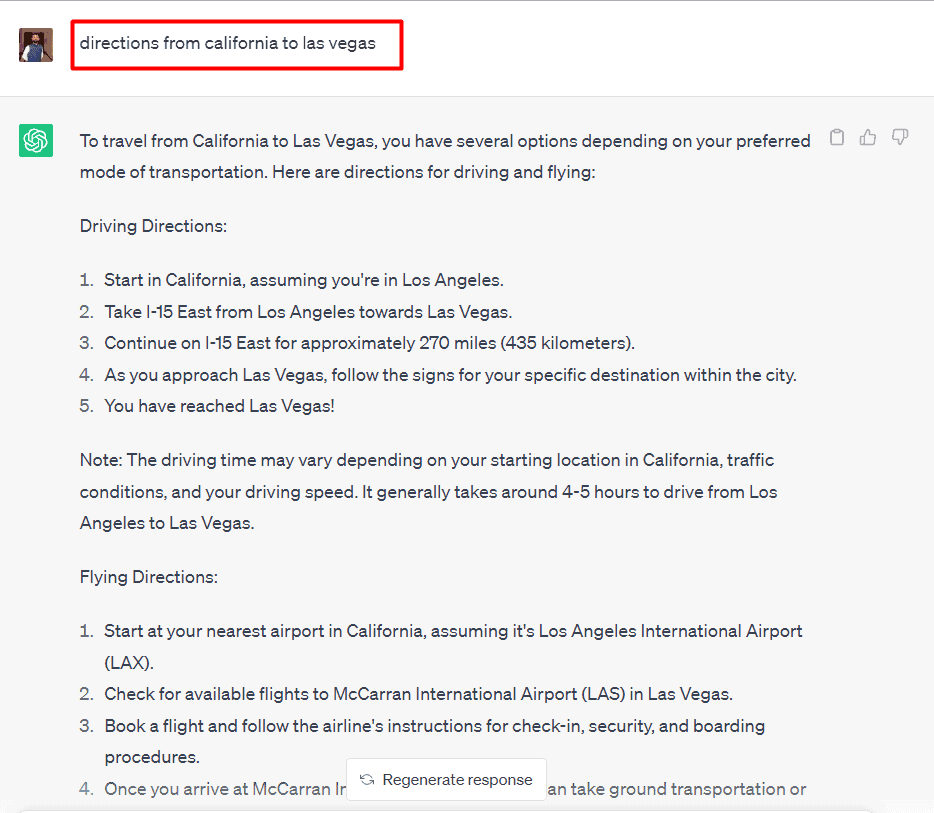
ChatGPT, while capable of understanding natural language queries, may struggle to provide the same level of local search results as Google. This is because Google has access to a vast database of local business information that ChatGPT may not have.
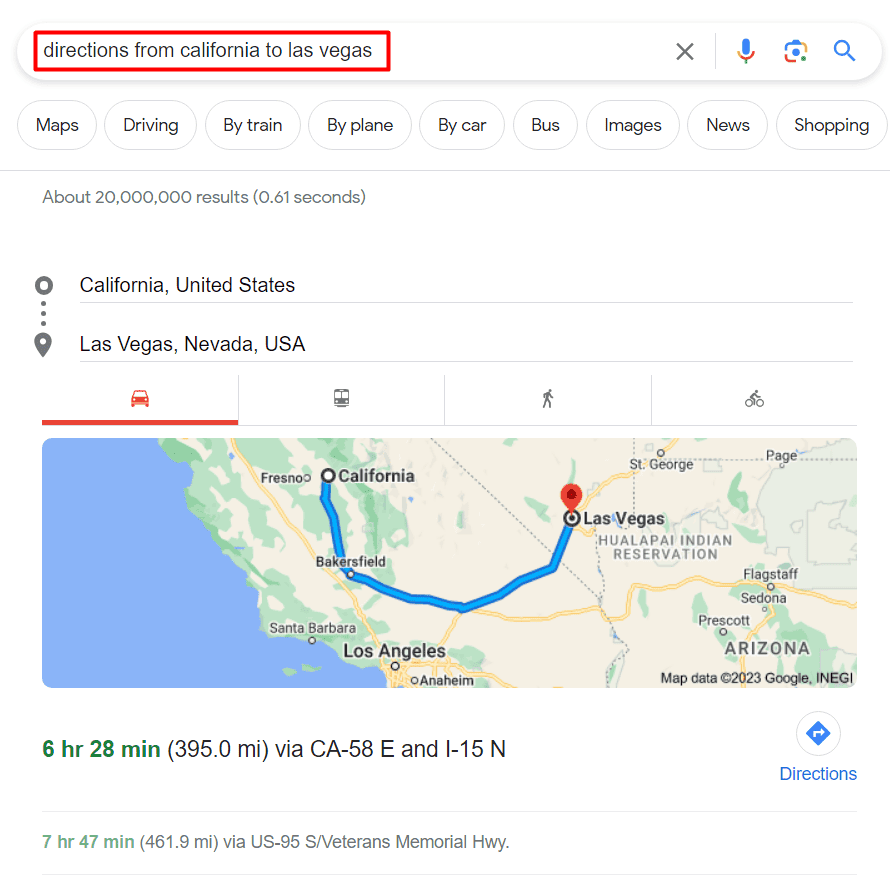
Tool Support
Google has developed specialized search tools that help in a variety of fields. For example, Google, Google Shopping allows users to search for and compare products from different retailers. This capability is particularly important for users looking for specific products or wants to compare prices across different retailers.
ChatGPT, while capable of understanding natural language queries, struggles to provide the same level of e-commerce search results as Google. This is because Google has developed specialized algorithms and databases for e-commerce that ChatGPT doesn’t have.
For example, when asked, “What’s the best Italian restaurant near me,” ChatGPT provided a generic response about Italian restaurants. In contrast, Google provided a list of specific Italian restaurants in the user’s local area.
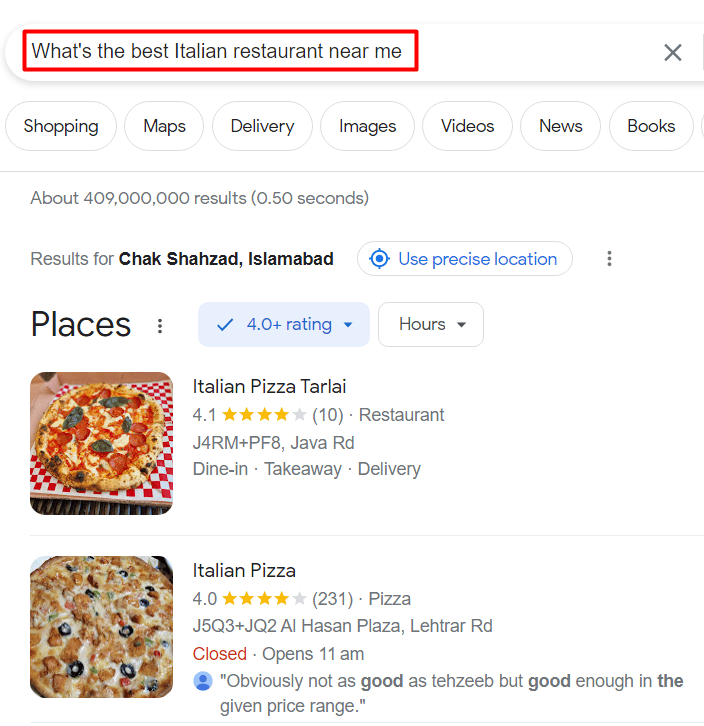
ChatGPT
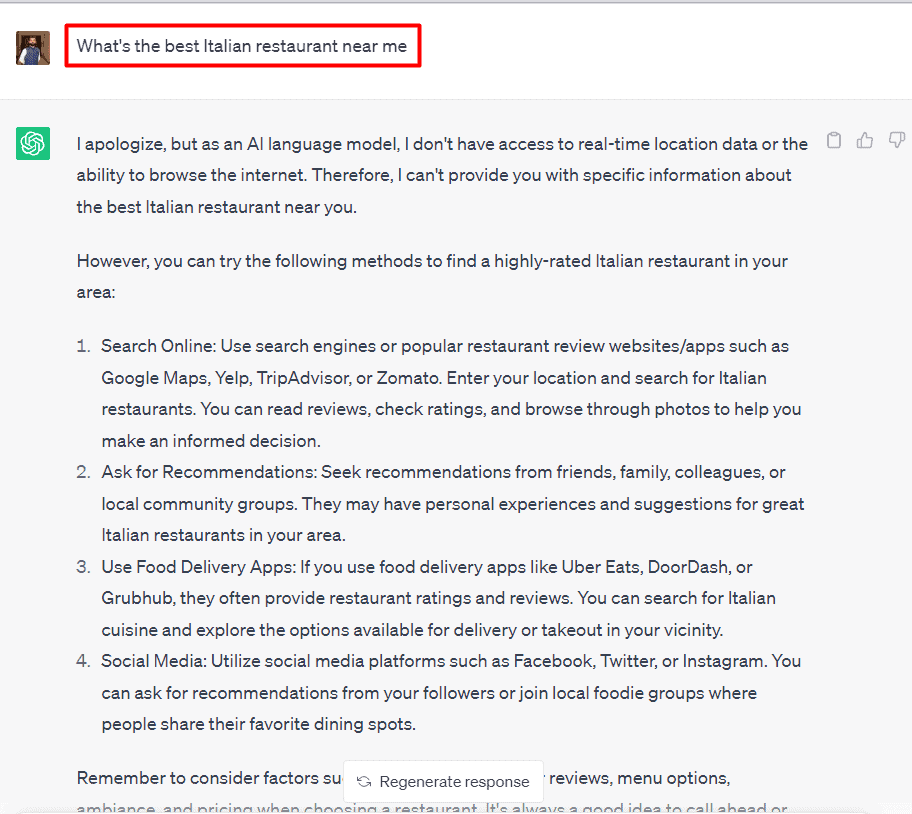
What Areas Does ChatGPT Perform Better Than Google?
While Google may outperform ChatGPT in some areas, there are still several areas where ChatGPT excels. Like, when you need quick and rapid one-liner results. Let’s look closely at some areas where ChatGPT performs better than Google.
Complex Queries
ChatGPT excels at processing complex queries that require nuanced responses. Its natural language processing capabilities allow it to understand the intent behind a query and generate a response that considers the query’s context and subtleties.
For example, if you ask ChatGPT, “What’s the best way to cook a steak?” it will generate a response that considers factors such as the cut of the steak, the desired level of doneness, and the cooking method.
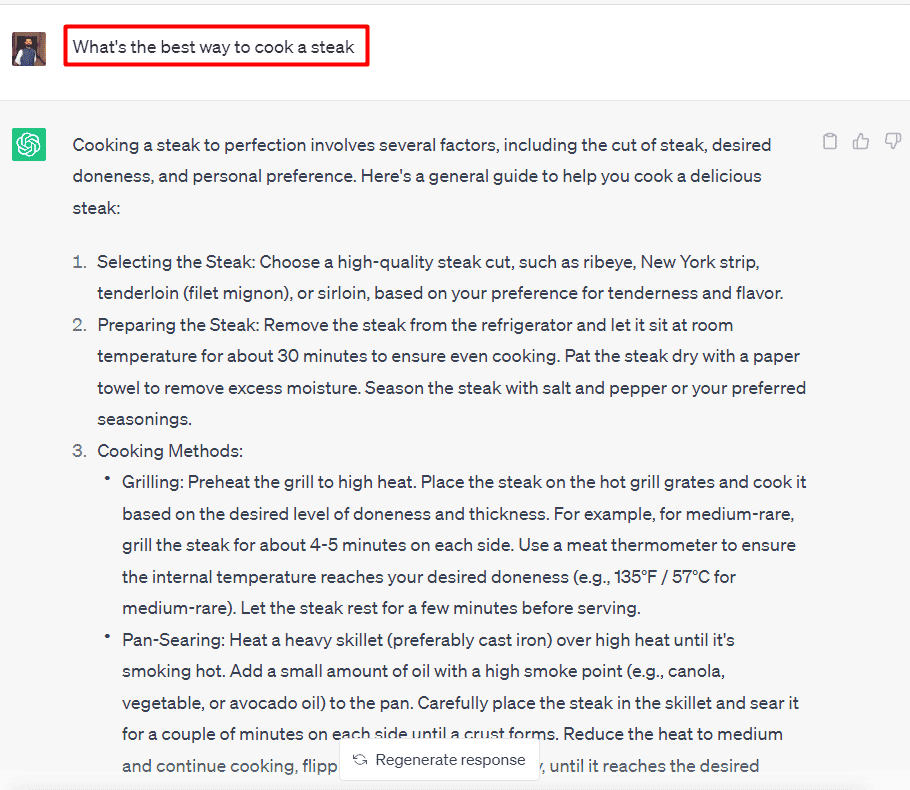
In contrast, Google may provide generic cooking instructions for steak that don’t consider the nuances of the query.
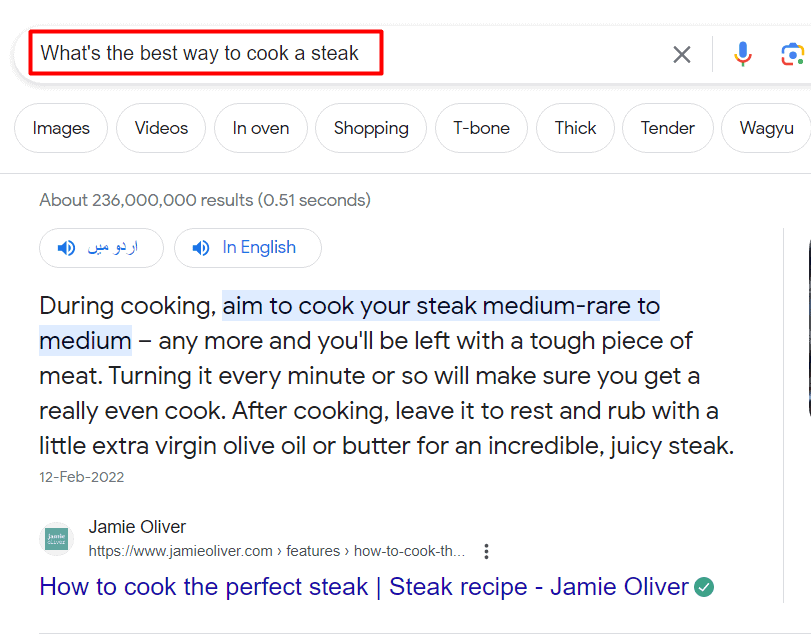
Personalized Responses
ChatGPT can generate personalized responses based on the user’s previous interactions and preferences. This makes it an ideal tool for tasks such as personal shopping, where the user’s preferences and tastes play a significant role.
For example, if you ask ChatGPT, “What should I wear to a wedding?” it may generate a response that considers factors such as the user’s style preferences, the time of year, and the formality of the wedding.
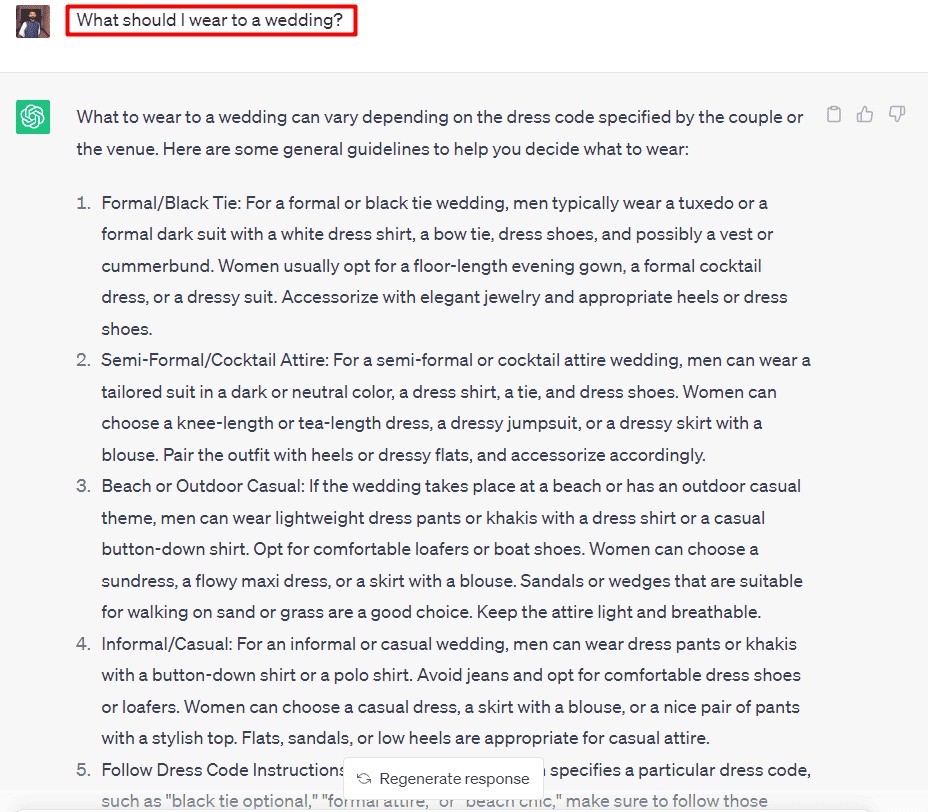
In contrast, Google may provide generic fashion advice that doesn’t consider the user’s personal style and preferences.
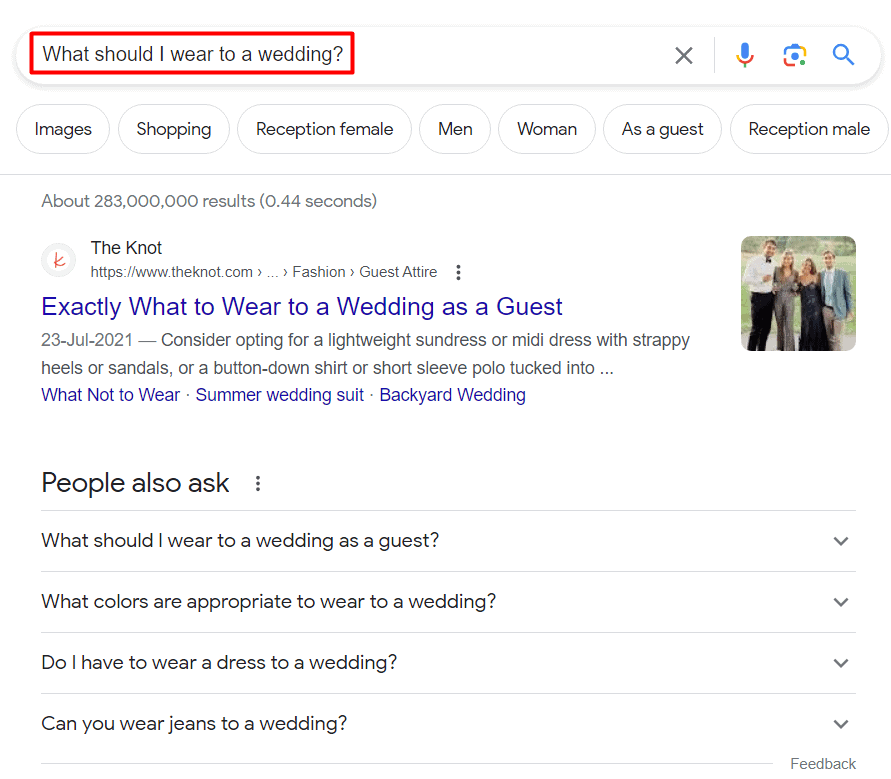
Creative Writing
ChatGPT can generate creative writing that mimics the style and tone of human writers. This makes it an ideal tool for writing marketing copy or product descriptions.
For example, if you provide ChatGPT with a product description and ask it to generate a similar description in a different style, it can do so seamlessly.
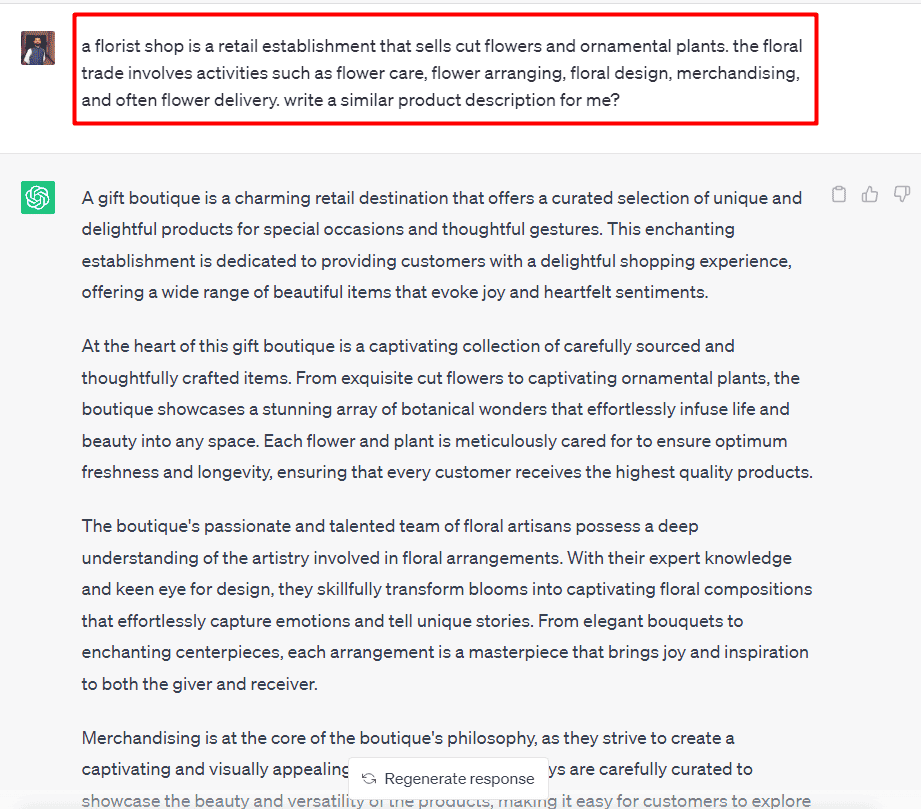
In contrast, Google may provide generic product descriptions that don’t consider the user’s specific needs or the nuances of the product.
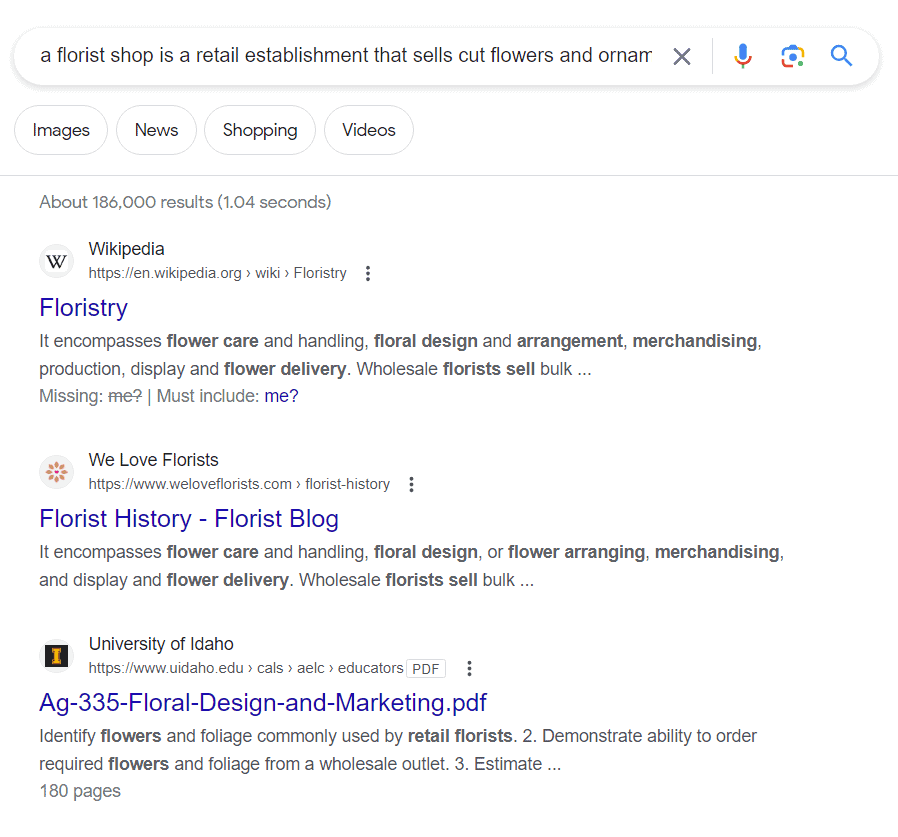
Conversational Search
ChatGPT can engage in a conversation with the user, providing a more interactive and engaging search experience. This makes it an ideal tool for tasks such as customer support, where the user may have multiple questions or concerns.
For example, suppose a user asks ChatGPT a series of questions about a product or service. In that case, it can engage in a back-and-forth conversation with the user, providing personalized and informative responses.
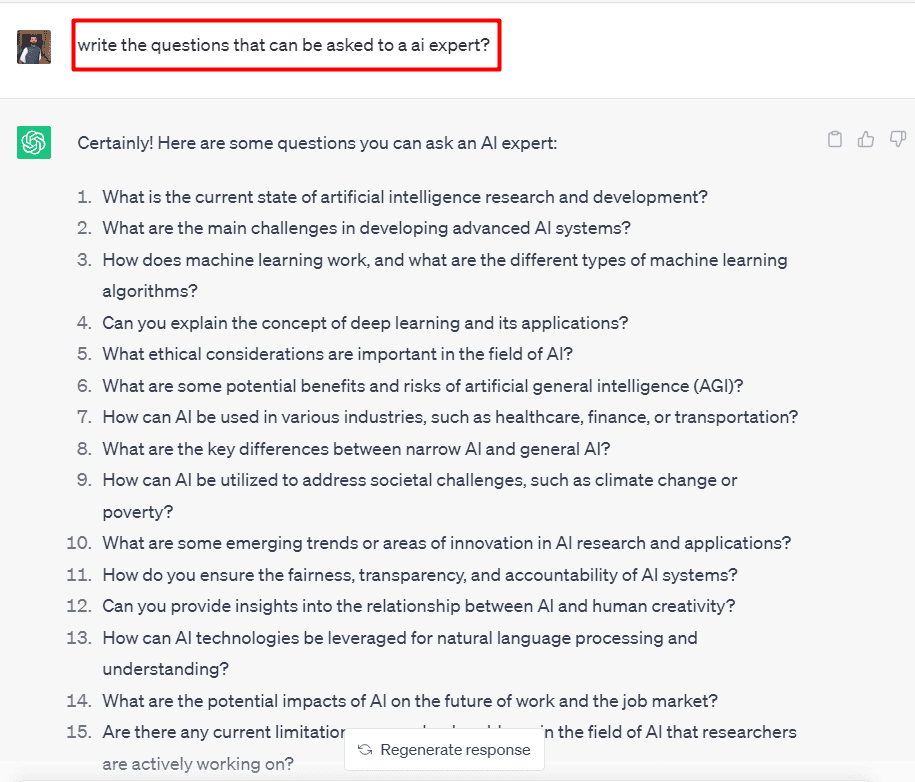
In contrast, Google may provide generic responses that don’t consider the user’s specific needs or concerns.
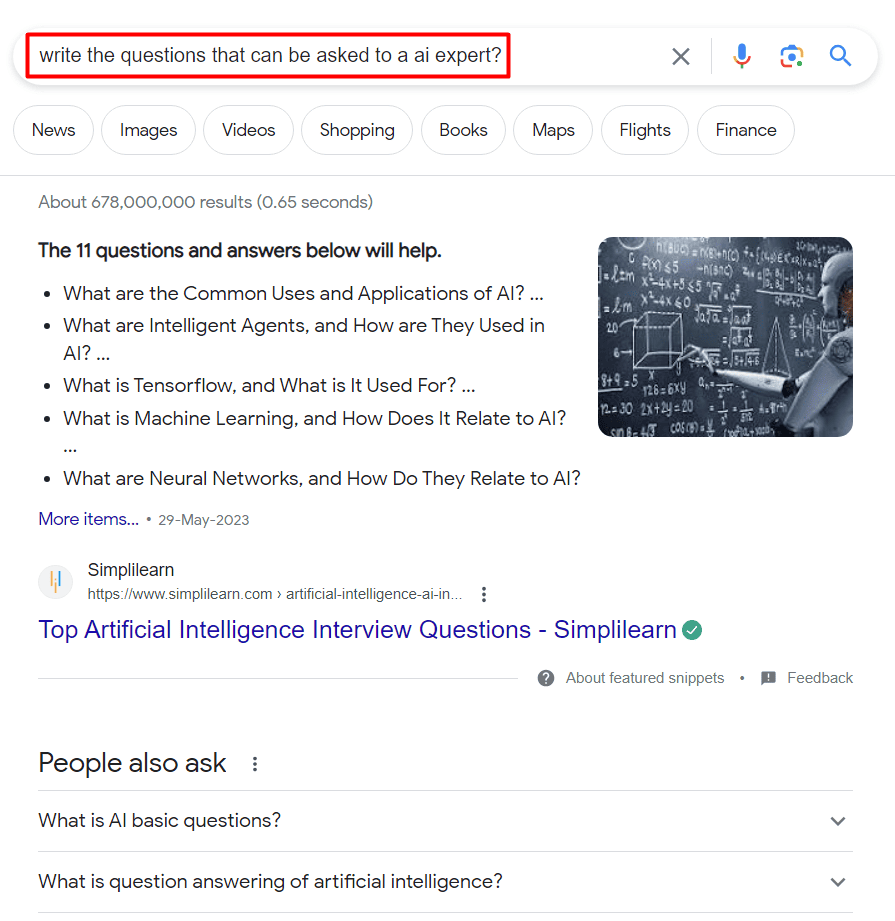
ChatGPT & Google FAQs
Does Google Use ChatGPT?
It is unclear whether Google uses ChatGPT. However, Google does use natural language processing and machine learning technology to improve its search results and other services.
Can You Use ChatGPT as a Search Engine?
ChatGPT is not a search engine in the traditional sense. Instead, it is an artificial intelligence platform that generates human-like responses to natural language queries.
However, some websites and applications have integrated ChatGPT to provide a more interactive and personalized search experience.
Is ChatGPT Better Than Google?
ChatGPT and Google have different strengths and weaknesses.
While ChatGPT excels at processing complex queries and generating personalized responses, Google remains the dominant search engine and is better at providing relevant and accurate search results for a wide range of queries.
Can ChatGPT Compete with Google?
ChatGPT and Google are not direct competitors as they serve different purposes. However, as ChatGPT continues to develop and improve, it may become a more important tool for certain types of queries.
Is ChatGPT Replacing Google?
No, ChatGPT is not replacing Google as a search engine. However, it may become an increasingly important tool for certain queries and search experiences.
What’s the Difference Between ChatGPT and Google?
The main difference between ChatGPT and Google is that ChatGPT is designed to generate human-like responses to natural language queries. At the same time, Google is a search engine that provides relevant and accurate search results based on keywords and phrases.
Is There a Better AI Than ChatGPT?
Several AI platforms and technologies offer different strengths and weaknesses compared to ChatGPT. Some examples include OpenAI’s GPT-3, IBM Watson, and Amazon’s Alexa.
What Does Google Think About ChatGPT?
Google has not publicly commented on ChatGPT specifically.
However, Google is known to be investing heavily in artificial intelligence and machine learning, and Google likely sees ChatGPT and other AI platforms as potential competitors in the search and technology landscape.